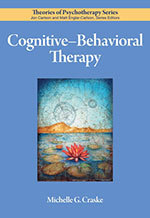 When someone begins treatment for bipolar disorder, I always recommend therapy along with medication because we know from studies that the combination of the two treatments works better than either alone.
When someone begins treatment for bipolar disorder, I always recommend therapy along with medication because we know from studies that the combination of the two treatments works better than either alone.
However, most people think about psychotherapy (talk-therapy) when the word therapy is mentioned. That is not a bad thing. Psychotherapy has helped many people with and without bipolar disorder lead fuller, happier lives.
But another option that is effective for many people is cognitive behavioral therapy. This therapy has only been applied to bipolar disorder in the last decade, but it has been used to treat depression even longer. Studies on its effectiveness in bipolar disorder are preliminary, but so far the evidence suggests it is effective.
What is Cognitive Behavioral Therapy?
Cognitive behavioral therapy is different than traditional therapy in that it is short-term and doesn’t involve delving into historic issues. Cognitive behavioral therapy is about the here and now and is about giving you tools to deal with the symptoms of bipolar disorder that you are experiencing today.
Cognitive behavioral therapy is an analytical process that encourages people to look at their behavior, feelings, and motivations to learn what triggers these situations and what can be done to handle them.
For example, in cognitive behavioral therapy:
- The patient is asked to explore their distorted thinking such as “I am god” when manic or “I am worthless” when depressed.
- Patients are encouraged to develop interpersonal routines such as sleeping and waking at the same time each day.
- Patients work to understand the warning signs of oncoming mood episodes and learn how to cope with these symptoms to avoid episodes where possible (relapse prevention).
- Patients are aided in exploring what triggers episodes or specific emotions.
Cognitive behavioral therapy may be delivered one-on-one or in groups.
For Whom Does Cognitive Behavioral Therapy Work?
It is my belief that anyone can benefit from cognitive behavioral therapy in some way; however, statistically, people with fewer than six mood episodes have been shown to have greater success with this therapy. Also, people who are in the midst of a crisis—either mania or depression—may not be in a place emotionally or intellectually to optimally benefit from cognitive behavioral therapy. Some degree of stability should be attained before attempting this therapy (medication and traditional psychotherapy may help achieve this).
It is recommended that specialists in cognitive behavioral therapy deliver the treatment for greatest success. If therapy is not available in your area, workbooks are available to walk you through the therapy although this likely won’t be as beneficial as a live therapist (and likely won’t be bipolar-specific).
Cognitive Behavioral Therapy Is About Tools
Cognitive behavioral therapy is not a magic bullet for mental illness but it is an assortment of tools that can help you battle the illness every day. It helps you deal with the symptoms that may linger in spite of treatment with medication or while searching for the right medication.
Find out more about cognitive behavioral therapy from Simon Fraser University’s Core Information Document on Cognitive Behavioral Therapy or visiting Healthline’s page on cognitive behavioral therapy.
Related Continuing Education Courses:


